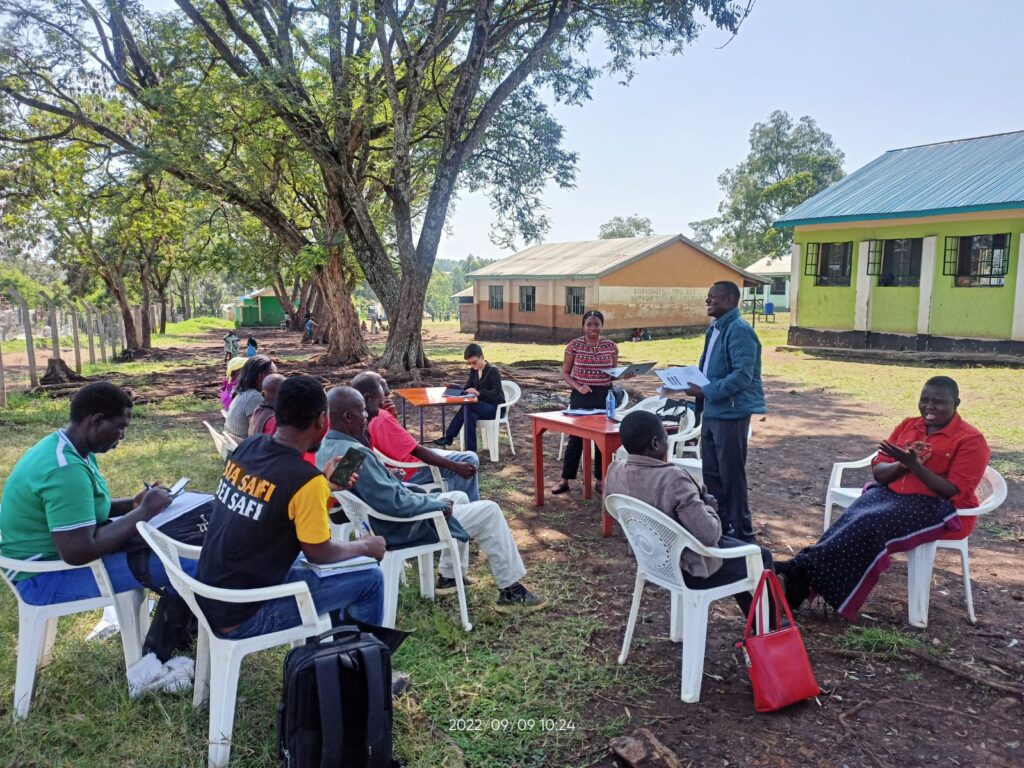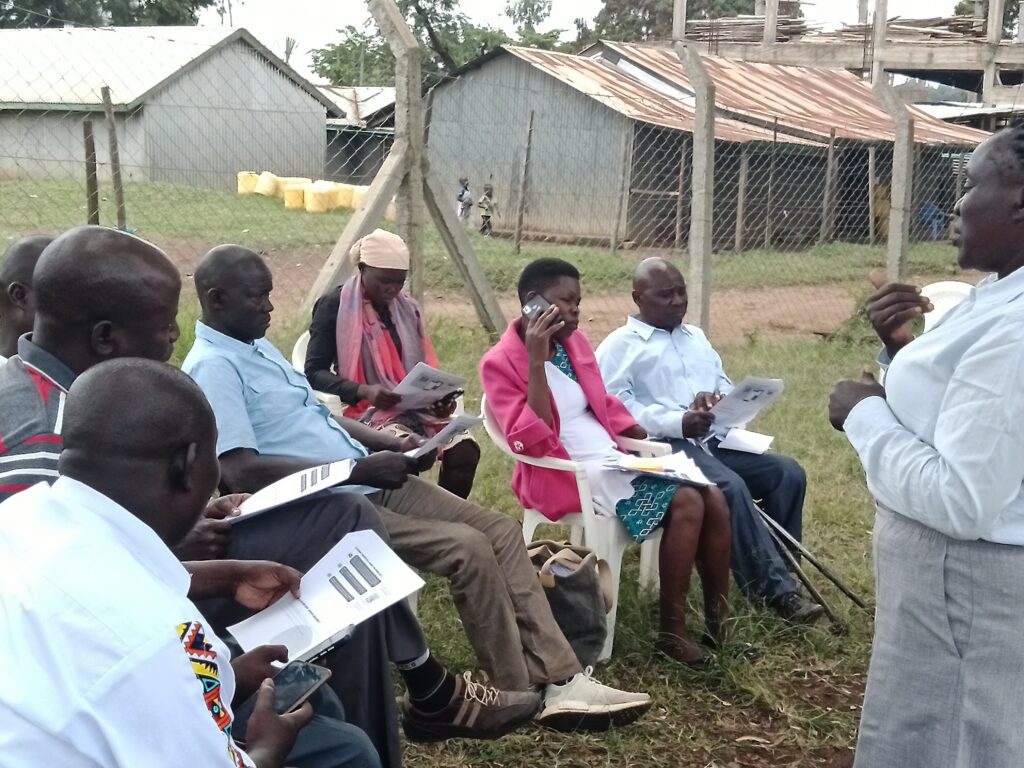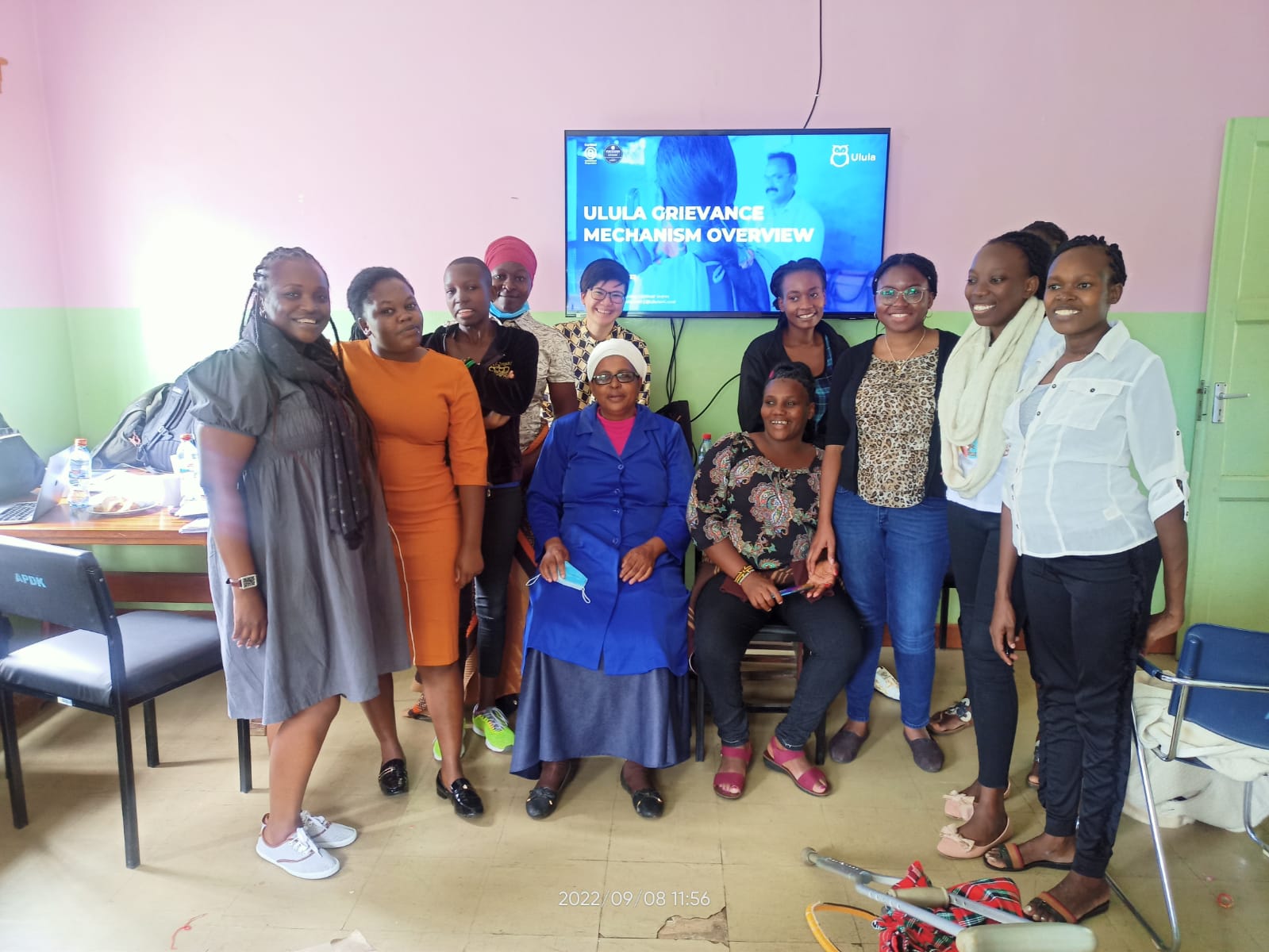This article originally appeared on the Inclusive Futures website. Read it here.
The Global Labor Program – Inclusive Futures is funded by the US Agency for International Development (USAID) and is a collaboration of eight organizations from Kenya and beyond. The coalition of international organizations included non-governmental organizations (NGOs), trade unions, and organizations of people with disabilities (OPDs). The aim of the program is to empower jobseekers, workers, unions, employers and government to achieve inclusive and decent work opportunities.
Our work engages with the suppliers and distributors of large-scale agriculture and retail businesses, encouraging them to implement human-centered policies that improve the protection of labor rights. It was particularly important to the project’s goals that these policies were inclusive of people with disabilities. What we achieve in this project will be an example to industries and governments on how they can focus on the inclusion of people with disabilities within their labor policies and day-to-day operations. The project also hopes to show how the inclusion of people with disabilities in labor rights discourse can strengthen protection for everyone.
Ulula’s technology extended the reach of the project by leveraging the human-centered power of worker voice.
Using Technology to Improve Labor Rights and Working Conditions
The Global Labor Program aims to test whether the ability to build interpersonal connections based on collaboration between value chain actors, trade unions and OPDs leads to more inclusive employment practices. The program attempts to show that when employment practices become more inclusive, more people with disabilities, particularly women, begin exercising their labor rights on an equal basis with others.
The program’s coalition leverages Ulula’s digital broadcast and grievance mechanism system to facilitate engagement between workers, employers, and consumers. The engagement channels include anonymous worker surveys, rights information broadcast services, and a continuous grievance mechanism that collects worker complaints in real-time and allows brands and coalition partners to follow-up instantaneously to solve disputes.
Insights gained from worker grievances using Ulula’s technology allow coalition partners, including brands, to understand workers’ concerns and use them to improve the social and physical conditions of their workplaces. Improvements in a brand’s adherence to labor rights — and the inclusion of disabled people within those labor rights — are often met with social success in the marketplace. By demonstrating a will to both observe and improve the status of labor rights in their value chains, brands stand to benefit from a positive reputation as a business leader in the field of responsible industry.
Designing a Human-Centered Grievance Mechanism
To maximize the impact and uptake of the proposed technology tool, Ulula used human-centered design: a process that starts with people and ends with new solutions that are tailor-made to suit their needs. We began our design process with the Inspiration Phase.
During the Inspiration Phase we:
- Met with 54 participants including farmers, retailers and representatives from local OPDs with disabilities
- Gathered feedback directly from interviewees in their communities on how they had previously experienced grievance mechanisms
- Discussed the interviewees’ familiarity with mobile technology and their current mobile habits
- Came to understand the interviewees’ needs and day-to-day experiences

Focus group participants in Kenya
Participants in focus group discussions provided detailed examples of discrimination based on disability and the challenges they had previously faced with reporting or filing a complaint. Although some participants successfully received remediation when they followed the appropriate channels to file a complaint within their organizations, many participants were not aware of the appropriate channels or had not known how to file a complaint. Of those who did file a complaint, many did not receive remediation within the existing complaints reporting structures, or experienced additional discrimination at the hands of the officials receiving their complaints. This insight into interviewees’ previous experience with seeking remediation for their grievances informed our understanding of the necessity of a truly human-centered grievance mechanism which provides clear information to users about their rights and how to file a complaint when their rights have been violated.
The initial Inspiration Phase also included collecting information on key trust and adoption factors for the grievance mechanism among participants. Participants underscored that they wanted to grievance mechanism to be:
- Unbiased and non-discriminatory
- Independent
- Convenient and accessible
- Provide a clear grievance process
- Responsive
Finally, the Ideation Phase set out to determine the participants’ familiarity with mobile technology. Because our goal was to simplify the grievance management process so that it might seamlessly integrate into the daily lives of its users, we first needed to establish our participants’ experience with mobile technology and how they might best interact with various digital interfaces. We began by asking participants to share how often they used their devices, when they used their devices, and what features they primarily used on their devices. We then ran trials of several digital mobile grievance channels and asked stakeholders to test them and provide their feedback.
The lessons we learned during the Inspiration Phase will inform the Ideation Phase. During this next step in the project, Ulula will work with our partners to make sense of what we have learned so far, identify opportunities for changes in the design, and prototype possible solutions — all the while keeping workers and participants at the heart of the process.

Participants testing Ulula’s grievance mechanism in real-time
Supporting Participants Through the Complaint Handling Process
While interviewing participants in the Inspiration Phase, we learned that — instead of expecting the grievance mechanism to offer immediate remediation and solutions — participants were looking for a reliable source of advice and someone to support them through the process of filing a complaint.
Many workers experience unreliable, unpredictable and sometimes non-existent accommodations in their workplaces. The lack of communication between authorities and workers about accommodation services makes it difficult for workers with disabilities to know what to expect when they arrive at work. This lack of prior knowledge often means that workers with disabilities are unsure of what to expect in a workplace and are at increased risk of early dismissal if they are unaware of their rights as a laborer. In response to what we learned in the Inspiration Phase, Ulula has adapted our grievance mechanism to include an advisory function and an education platform within our service.
Ulula’s grievance mechanism provides a triad of services that work together to increase workers’ confidence in filing complaints reports. They include:
- Grievance Mechanism
- Designed in collaboration with local partners
- Workers report and seek remedy of labor rights issues
- Collect data on resolution status, timing and worker satisfaction to understand progress
- Rights Information System
- Direct information sharing with targeted workers (women, those with disabilities)
- Messages and content, supported by the Equal Rights Trust
- Project-wide Dashboard
- Brand and consumer facing dashboard
- Aggregate insights on issues raised, resolution and progress
- Increase education and awareness to better understand workers challenges
We expect the first version of the grievance mechanism to launch in Q4 2022, with additional adaptations to come as we receive feedback from key stakeholders and other interested parties. Throughout the project thus far, Ulula has held firm to the belief that grievance mechanisms should be human-centered. Regardless of the changes made to the platform, its core feature is that it is built on a human scale with human input.

